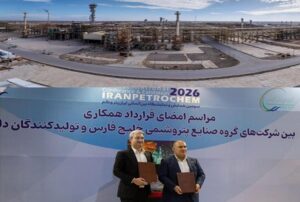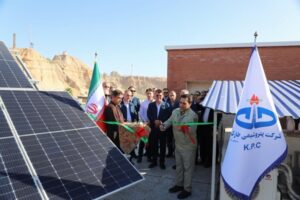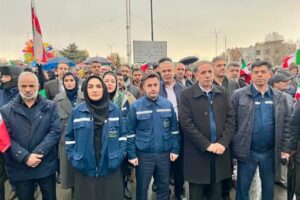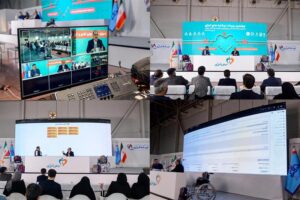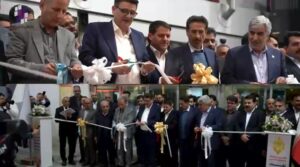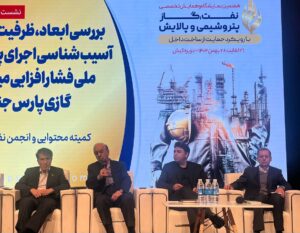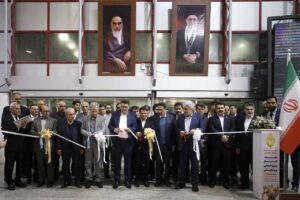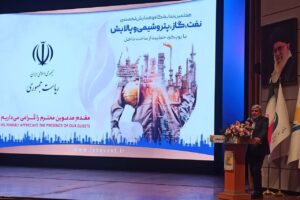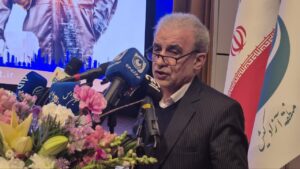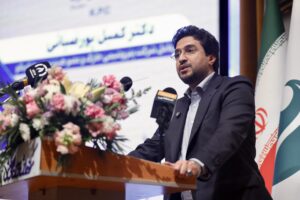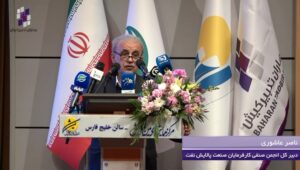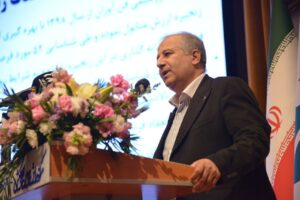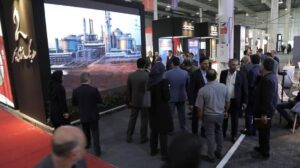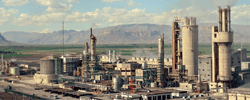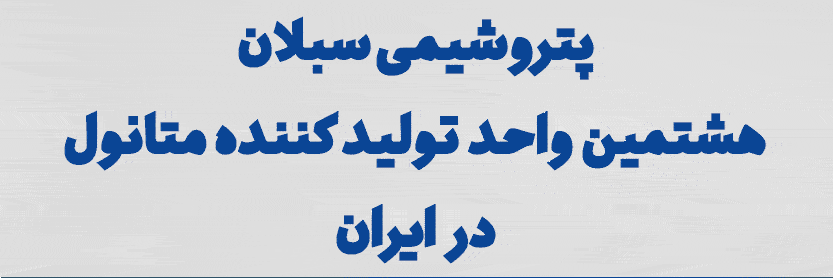Rabord Energy: Iran’s Deputy Oil Minister and Managing Director of the National Iranian Oil Products Refining and Distribution Company (NIORDC) has praised the efforts of his colleagues over the past 33 months and said they have performed brilliantly in the field of software and hardware.
Jalil Salari noted that the developments at the Isfahan Refinery Company are also impressive, and it is the first refinery that has a production capacity of 400 thousand barrels. Salari made the comments in a meeting that was held on July 21 in the presence of the CEOs of all companies based in Energy City of EORC, the representative of the people of Isfahan in the Islamic parliament, and the representatives of the people of Shahinshahr and Meimeh.
Salari noted that the responsibility for the defense of Energy City (Shahr-e- Energy) rests with the CEO of the refinery and said that in the 13th government, good measures were taken to consolidate companies in the form of Energy City in the provinces.
Salari also said great accomplishments have been made in the refinery, and its projects are moving forward. He said the task of allocating 40% of the refinery’s profit to improve the quality of products has been achieved.
He further noted that comprehensive plans that were stopped in the past years were relaunched in this administration. He also said the fuel oil project has made acceptable progress and will be put into operation next year.
He also noted that the company is now extracting 460 tons of sulfur, and fuel oil is 3.5% of its achievements. He also noted that the company is now suffering from bunkering problems.
Some of the projects at Isfahan Refinery will be moved to the south of the country due to the climatic conditions
Regarding the issue of social responsibilities, he noted that good things have been done both in the surrounding environment and in the region itself. Salari said that during the 13th administration, 40 thousand billion tomans were allocated for the issue of social responsibility.
He also stated that some of the projects at the Isfahan Refinery will be moved to the south of the country due to the climatic conditions. According to Salari, it will be a big challenge to transfer all this fuel from the south of the country to the north of the country. 42 million liters of diesel and 50 million liters of liquid fuel are consumed in the agricultural and industrial sectors, and if 10% is saved, a high figure of optimization will be achieved.
Referring to the implementation of the online survey plan, he said that all the vehicles that operate outside the city will get the necessary fuel along the way. According to Salari, this plan has been prepared and is waiting for an execution order from the government. He said the project will reduce fuel consumption by 5 to 6 million liters.
According to Salari, fuel consumption in Tehran has now reached 21 million liters a day, and the changes in working hours have caused an increase of 1.5 million liters per day.
He also said that the HVC system has been launched and the passive defense has examined its security. He added that its systems, architecture, equipment, and software are domestically produced, and the policy in the field of optimization is being pursued.
We need to move toward cars with less fuel consumption and a more varied fuel basket
Salari noted that Iran now needs to move toward cars with less fuel consumption and a diverse fuel basket. He said a great deal of work has been done on the fuel quality. Currently, 75% of Iran’s gasoline production is based on euro standards, and 65 million liters out of 110 million liters of Iran’s diesel fuel production follow euro standards.
He said that three million liters of fuel were given to power plants last year. He noted that consumption in the industry sector is really high. There was an increase of 13 million liters, which is equal to the production of the Isfahan refinery.
He added that special attention should be paid to consumption management, and the parliament should pay special attention to this area. He said over 3 billion tomans must be paid to the company following the plan to target subsidies. The law states that 5% of the sales of products must go to the National Development Fund; the refinery’s sales are based on clearing which must be reformed.
Source: EORC Department of Public & International Affairs


